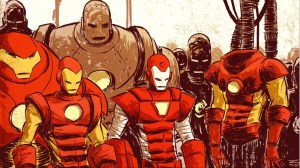The rise of the slasher film in the late ’70s and ’80s saw a number of horror outings that offered audiences fairly formulaic storylines. A masked murderer would typically kill teenagers one by one until only one female hero remained, as her focus was to defeat the villain as opposed to engaging in promiscuous sex, drugs, or alcohol. Heather Langenkamp’s Nancy Thompson in A Nightmare on Elm Street is considered a defining “Final Girl” to many horror fans, thanks to her abilities at defeating Freddy Krueger after he had killed many of her friends. Despite some of the horror community considering Nancy to be a shining example of the Final Girl, actress Heather Langenkamp has a more conflicted relationship with the stereotype.
Videos by ComicBook.com
“I think about that question all the time, because I feel sorry for guys who want to play strong characters in horror movies,” Langenkamp shared with ComicBook.com when discussing how to change the horror landscape away from stereotypical female characters. “If there’s a young man out there who wants to be in a movie with a great horror director, are there going to be scripts that have male characters that do the same thing as Nancy? It’s sometimes hard for me to imagine, because every time it just seems like we’re always defaulting now to having the girl to do all this heavy lifting in the horror movie. But I don’t know. I mean, I would certainly like to support all stories.”
She continued, “I think you have Get Out, which has your protagonist as a man. And that, to me, was one of the best parts about it, is that he’s the ‘Final Man’ in a long time in a movie, and it was great. It could’ve been a woman character too, but in the way that script was written, it was really natural to have that character be a man. I can also envision that character, everything being flipped, where every male character was a woman, and every woman was a man. And I think that’s the beauty of a really good script is that you could really put anybody in the roles and it would still be an effective story.”
Jordan Peele’s Get Out is only one of the recent examples of the ways in which genre filmmakers are offering audiences unexpected and horrifying narratives, with Langenkamp also citing Hereditary as another example of a story which is frightening while offering more complex gender roles.
“Hereditary‘s a really good example,” Langenkamp shared. “There’s just such a great story. You could’ve had really great actors fill all those roles. I mean, really great actors did fill all those roles. And it could have been another whole set of actors, and it could have had a male in some of those female parts and vice versa. What I think is so great is that the parts are not so specific and there’s a lot less, ‘Oh, girls act this way, and boys act this way, so therefore … ‘”
She added, “Everyone is really realizing that the range of human activity goes on both sides. And so, that way, both genders in our world are really capable of playing Final Girls, or Final People, Final Teenagers, Final Humans, Final Dogs. It’s like you could have a whole range of different folks play these characters. And I think [A Nightmare on Elm Street director] Wes [Craven], in putting a woman in that role, he really felt like he was shaking things up, and at the time, to make this point about the strength of women.”
What do you think about the actress’ comments about Final Girls? Let us know in the comments below or hit up @TheWolfman on Twitter to talk all things horror and Star Wars!









